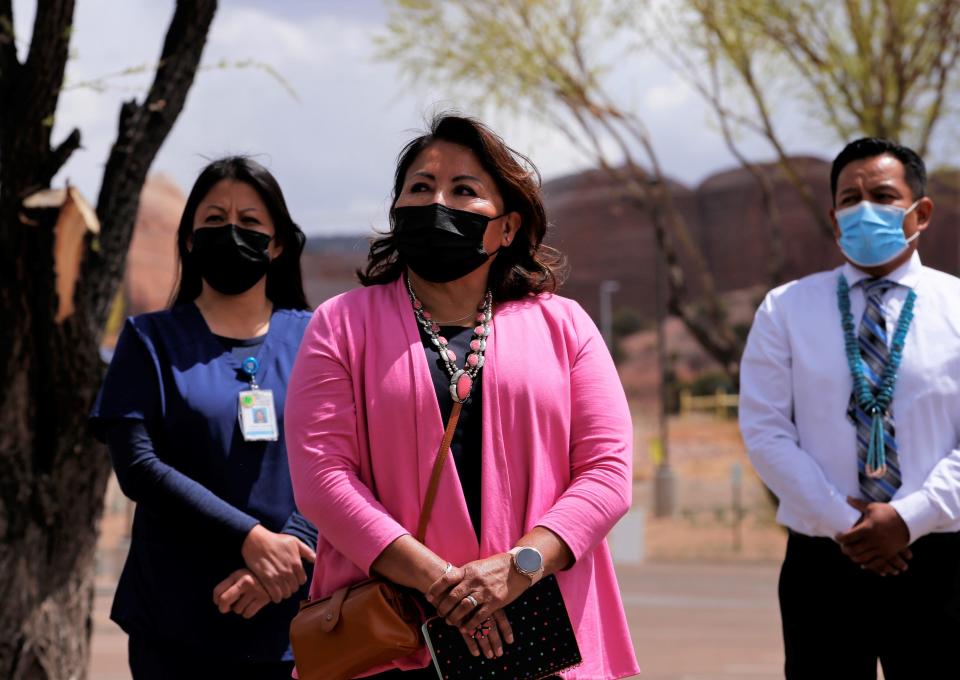After 609 days, the Indian Health Service has a new leader
In a long-awaited vote, the U.S. Senate on Wednesday confirmed President Joe Biden’s pick to lead the Indian Health Service. The health care provider for 2.6 million Native Americans had not had a permanent leader in the 20 months since Biden took office.
Roselyn Tso takes over as IHS director after leading the agency’s operations on her own Navajo Nation.
During her confirmation hearing in May, Tso pledged to prioritize patient safety, worker retention, and technology upgrades at aging clinics and hospitals.

IHS was set up to begin meeting the federal government’s treaty obligations to tribal nations. But Tso will be inheriting a system that has persistently failed to keep up with actual needs, a problem that was escalated by the COVID-19 pandemic.
Life expectancy for Native people fell by more than six years from 2019 to 2021, the biggest drop found by the U.S. Centers for Disease Control and Prevention. It’s now 65 years old. The U.S. average is 76.
Leaders hope confirmation of Roselyn Tso boosts funding, services for Indigenous Americans
Tso’s confirmation will give tribal nations a central voice in the Biden administration to tackle pressing health issues, such as high rates of diabetes and cancer, Indigenous leaders and advocates said.
“Ms. Tso was born and raised on the Navajo Nation and understands the health care needs that many first people of this country deal with,” Navajo Nation President Jonathan Nez said in a statement. “Her work ethic, value system and approach to problem solving demonstrates the resilience of Indigenous peoples and the commitment to combat the systemic inequities that impact tribal nations.”
Does the Osage reservation exist? Question isn’t settled after McGirt
In addition to operating its own hospitals and clinics, IHS funds health care facilities run by tribes and urban Native groups. It is an arm of the Department of Health and Human Services, with its own 15,000 employees and a $6.6 billion budget that falls far below what tribal leaders say is necessary.
Biden chose Tso to become its next director in March as he faced increasing pressure to fill the office. Tso’s Trump-era predecessor resigned in January 2021. Longtime IHS staffer Elizabeth Fowler, a Comanche Nation citizen, served as acting director in the interim.

 Yahoo Autos
Yahoo Autos 